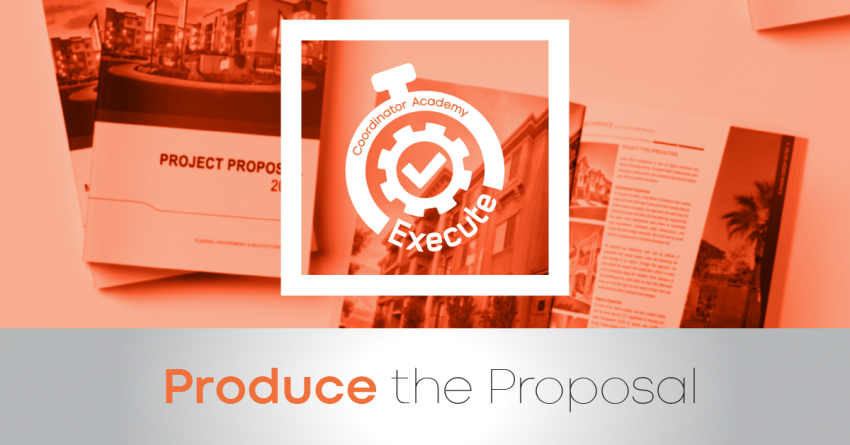Guidance for Marketing Coordinators
Marketing Coordinators, before you begin production of a proposal, make sure you know the RFP back to front. If you don’t know the hot points, critical issues, and background of the potential project, get that done ASAP—meet with your teammates to ensure you are not misinterpreting any of what the RFP includes.
Be Prepared
In preparation for the proposal kick-off meeting, create a quality draft to show the proposal team what is available. Most proposals will include the following components in some fashion. All of these should be a part of your firm’s boilerplate. It is your job to ensure each is modified to be specific to this particular proposal.
- Cover Letter
- Summary
- Scope of Work
- Project Approach
- Project Team
- Project Experience
- Client References
Tailor the Draft
Together with the proposal team, review the RFP and draft outline to determine what needs to be updated, who will be responsible for which sections, and when you can rely on each other to provide content. Having a firm and feasible schedule will keep expectations in check.
So What?
As you and your team tackle each section, make sure to hold one another accountable for schedule, client-focused content, and solutions to project challenges. Be proactive as you put together a quality draft, and always consider the client first and foremost. What is their technical level? Do not write above what they can understand. Be clear and concise, stick to the subject, and drive toward answering the big question: “So what?”
Read, Review, Edit, and Read Again
After finishing your client-focused writing, engage in quality control. Review for consistency and theme, edit and cut harshly, and make sure a practiced proofreader catches all grammar and syntax errors. Your proposal should integrate the client’s language and include testimonials and graphics to assist the selection committee in their understanding and draw them in. Remember, a picture is worth a thousand words. Use illustrations and infographics whenever possible.
Now What?
Once you are done, debrief your process. Look over the final proposal and take care of the extras. Do you need to update your boilerplate due to edits or corrections? Do any marketing materials need replenishing? What can you improve for next time?
Next, prepare for the interview. The proposal is one of many steps in a project pursuit.
Whether you make the shortlist or not, always debrief the client and incorporate what you learn into your process.






